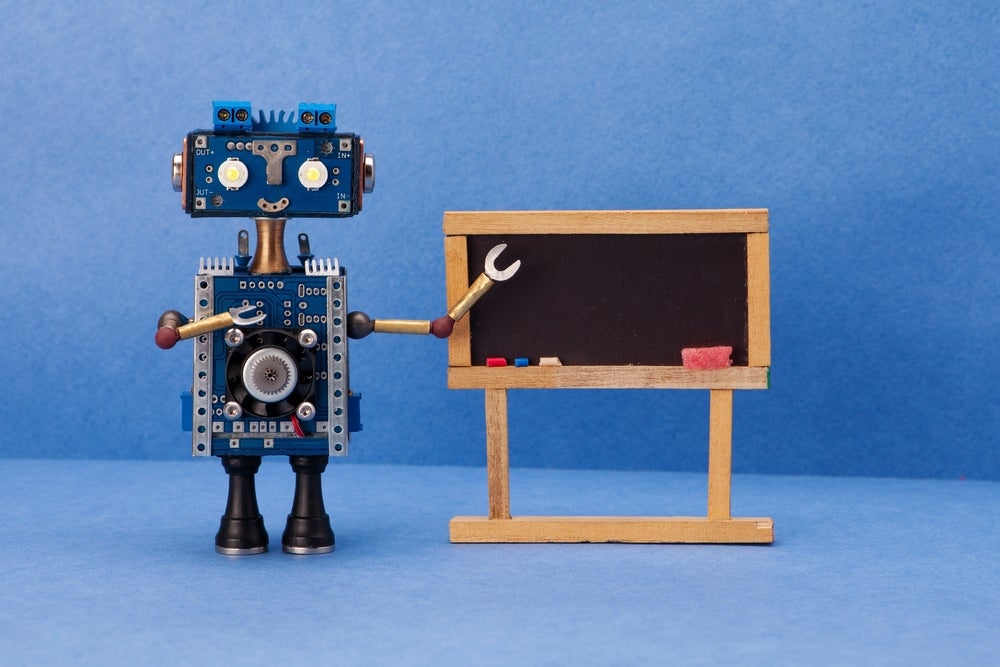Since the launch of ChatGPT generative artificial intelligence (AI) has been the word on everyone’s lips.
As one of the hottest technology themes of 2023, it has many use cases across different industries and its impact on people’s daily lives is increasing. GlobalData forecasts that the global generative AI market will reach $33bn in 2027, recording a compound annual growth rate (CAGR) of 80% between 2022 and 2027.
British school employs an AI chatbot principal
A novel use case of generative AI just took headlines as a private British boarding school decided to employ an AI-powered chatbot principal to assist and advise the school’s human principal. The AI chatbot, named Abigail Bailey, has the digital appearance of a smart businessperson and functions very similarly to ChatGPT. Users write down their inputs and Abigail’s algorithms come up with an answer.
The principal is confident that Abigail will be instrumental in helping him in executing his duties. The tasks that she will be advising the principal about include assisting the staff, helping students who suffer from ADHD, and writing school policies. Abigail can scrutinize a considerable amount of data and knows about educational management and machine learning.
Generative AI is becoming mainstream in nearly every industry and people will need to engage with it more as the years pass. Considering this, the principal believes that Abigail will be an opportunity for children to interact with AI technologies from an early age. Depending on the success of Abigail, it is likely that more schools will adopt generative AI to boost their offerings and the performance of their staff.
Can we trust the accuracy of an AI principal?
According to GlobalData, today, generative AI is capable of basic translation and conversation but is not reliable. The information that generative AI platforms produce cannot be fully relied upon for now as these platforms do not have an “understanding of the world” and therefore cannot cross-verify their output. They are dependent on creating text that matches human-generated content.

US Tariffs are shifting - will you react or anticipate?
Don’t let policy changes catch you off guard. Stay proactive with real-time data and expert analysis.
By GlobalDataAt present, generative AI has an accuracy of around less than 80%. GlobalData also argues that there may be some regulatory challenges associated with generative AI. As a generative AI technology, Abigail might be susceptible to ‘hallucinations’ that can lead her to produce wrong or misleading answers. Models can also contain unintentional bias and affront specific demographics. This can especially create serious problems in a school setting when dealing with students.
So, for now, it makes sense to use Abigail only as a supporting mechanism that can help the human principal.
What does Abigail mean for the future of work?
GlobalData suggests that we are currently in Phase 1 of the generative AI roadmap which refers only to basic accuracy. The employment impact of this phase is limited to collaboration and productivity enhancements.
However, in 10 to 30 years, generative AI will level up to Phase 3 and become knowledgeable. It will reach close to 99% accuracy and be able to replace specific roles and teams. It will have knowledge of the world like facts, common sense, and planning skills.
GlobalData expectations even divulge that in 35 to 100 years, generative AI will achieve sentience and consciousness, be fully accurate, and be capable of broad role replacement. It is becoming clearer that AI technologies will be more present in the future of work. Today, it acts more as a support mechanism, augmenting human workers’ performance and assisting them in their tasks. However, one can see that generative AI will be more influential in the future.









